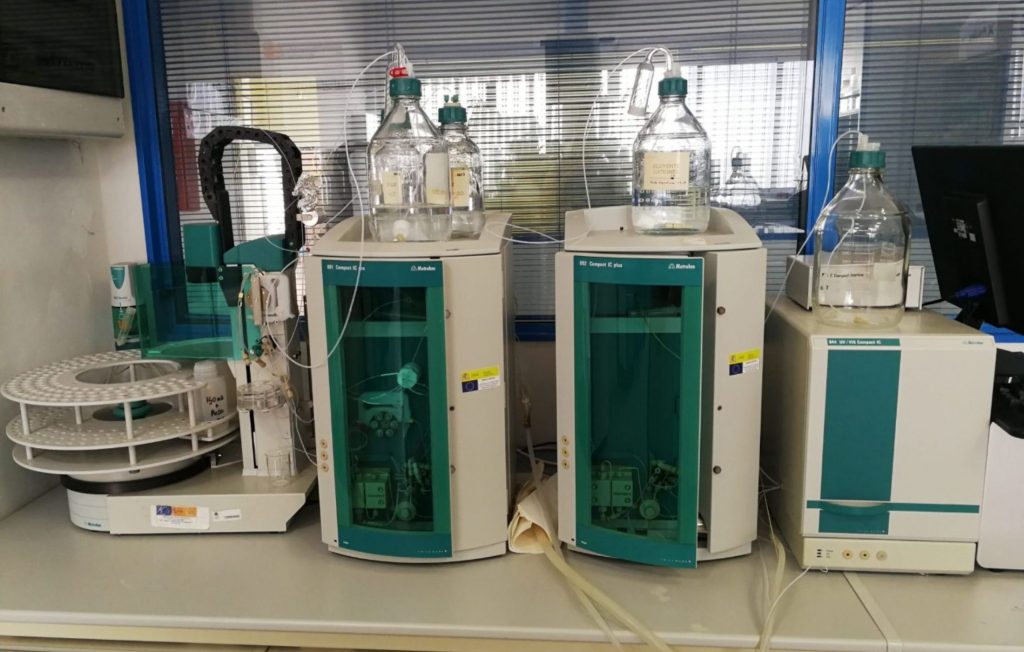Cations and anions analysis in water samples

This service of cations and anions analysis in water samples allows the analysis of cations (lithium, sodium, ammonium, potassium, calcium and magnesium) in addition to major inorganic anions in water (fluoride, chloride, nitrite, bromide, nitrate, phosphate and sulfate) from 12 mL sample using ion chromatography, for filtered aqueous matrices (0,45 μm) and with conductivities oscillating between 800-1.000 μS/cm.
Ion chromatography is based on the use of ion exchange resins. When an ionic sample passes through these columns, the existing ions are separated due to the different retention times they undergo when interacting with the fixed phase of the analytical columns. Once separated, the sample passes through a detector (conductimetric, amperometric, UV…) where the signal obtained is recorded with respect to the retention time. The retention time of different species determines the ionic concentrations in the sample.The result is chromatograms in which the position of the maxima indicates the ion present (qualitative character) and the area indicates how much of that ion there is (quantitative character).
Typical applications of ion chromatography are of great interest from an environmental point of view, including analysis of: drinking water, waste water or water with high nutrient concentrations.
Service location: INMAR laboratory no. 2 (INMAR/IVAGRO Research Institute Building, ground floor. Puerto Real University Campus, University of Cádiz).
To request the service, click on the following link: cations and anions analysis in water samples service request
External users must register at the following link: CAU INMAR registration
For more information, please contact the research staff: bibiana.debelius@uca.es
This equipment has been financed by:


